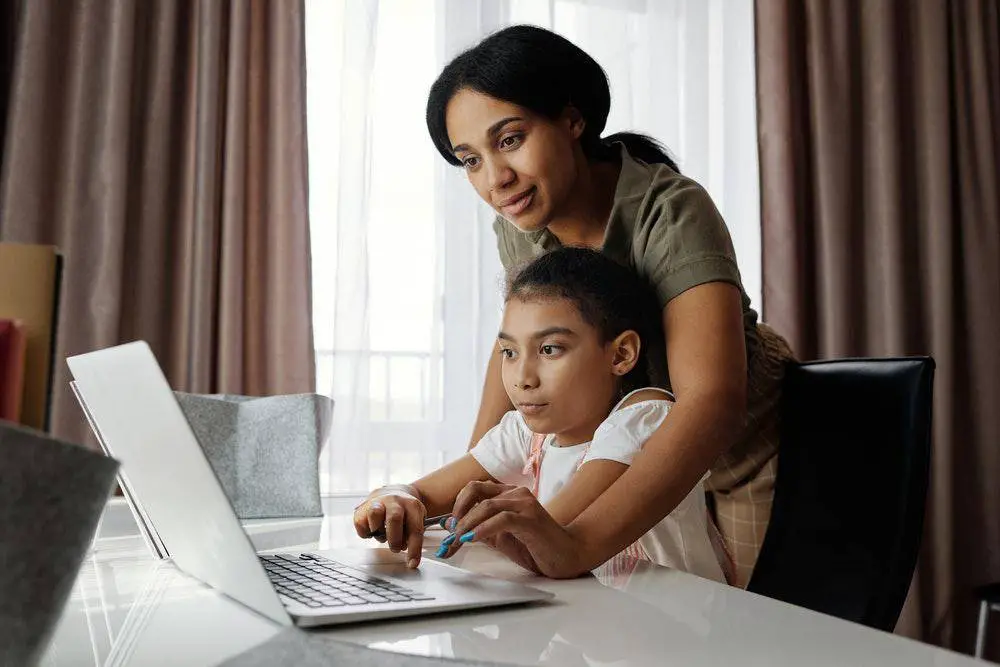 Given the current situation of the pandemic, distance learning is not a foreign or an all-adult concept. In actuality, today, kids of all ages are very well familiar with the concept since they are a part of it.
Given the current situation of the pandemic, distance learning is not a foreign or an all-adult concept. In actuality, today, kids of all ages are very well familiar with the concept since they are a part of it.
However, we must admit that despite their extensive knowledge, exposure to remote learning is still relatively new. Children can work their way through it. But to ensure that they do so effectively, parents may feel the need to intervene and guide them through the process.
Here in this guide, we have gathered the top 8 aspects of consideration along with relevant tips. Our survey of expert experience and analysis has brought highly effective approaches to our knowledge, which of course, we cannot resist sharing. So, let’s get straight into it.
Top 8 Virtual Learning Tips
As mentioned above, here are the tips that experts and experienced parents recommended themselves. Before applying these to the premises of your home, ensure that you’re well aware of the responsibilities and consequences involved.
1. Create a Spacious Learning Environment
Since your child is not going to the school, he does not have the proper learning environment, i.e., no desks, no chairs, no bookshelves, or fellow students. Hence, it’s ten times more difficult for your child to stay focused.
For this very reason, you need to establish a separate space for your child’s learning time. It could be a dedicated corner of their room, a desk, kitchen table, or anything else. You need to declutter this area and keep it as clean as possible.
2. Equip Your Child Well
Lack of proper equipment can hold back your child from making the progress that he ought to. A fluctuating internet connection or a malfunctioning monitor, keyboard tray, or keyboard will keep them from staying focused or catching up the pace with the rest of the class. Thus, discouraging them at a point or two. Hence, provide your child with all the necessary resources. Be it in terms of devices, connections, stationary, mental space, or time. Ensure that you do not have him worry about anything but studies.
3. Welcome Constant Growth
As mentioned earlier, we currently live in a world where technological and scientific progress corresponds with the movement of the minute hand on the wall clock. Naturally, this demands constant input from all ends. Be it teachers, students, parents, or caretakers.
Keep yourself in check with the trend and progress. And keep yourself open to newer approaches to addressing issues. Keep exploring the ways experts suggest better understanding and assisting your child’s virtual learning experience.
4. Keep it scheduled and Organized
Life at home can get super lazy. Children might not want to get out of their bed and might consider putting on their classes with the camera turned off and mic muted while they sleep. You need to keep a check for this and ensure that your kid is sitting upright and attentive, listening to the on-going lecture, and participating to the best of their potential. Create a schedule for the rest of the fun activities. So, your child keeps it all balanced.
5. Monitor Progress
It’s easy for children to copy-paste stuff from the internet and claim that they completed the assignment genuinely by their efforts. You know, the teachers aren’t around to keep an authenticity check. Hence, we suggest all parents weekly assess the learned stuff, so the child is more attentive in class and eager to learn.
6. Give a Thorough Feedback
Your child is not receiving the due affection. The presence of a screen between them and their teachers wastes their effort in making their assignments unique. The teacher never notices. Or even if they do, the child does not receive the in-person praise they deserve. And hence, as a parent, it falls upon your shoulders to keep the spirits of your child sky-high.
When they complete their work and share their progress with you, make sure you give thorough, detailed feedback. Pay attention to the details and do not cut it short for yourself with a mere good-job. Also, encourage your children to display their work on the walls, so that they feel appreciated like they ought to.
7. Encourage Exploration
Spending time online provides an opportunity to explore other skills as well. Encourage your children to explore other academic and skill-improving platforms on the internet. Plus, if they lack class participation, encourage them to speak up and improvise their speech skills. Since there are no extracurricular activities, push yourself deeply to provide them with out-of-school learning opportunities.
8. Cut down distractions
You may find your child completing a level or two as they attend their maths lecture. And well, you can’t blame them. Their PlayStation was just right before them, while the lecture was way too boring. Isn’t it?
Hence, instead of asking your child to resist themselves, you need to cut down the distractions by yourself. Tidy up the environment where they take their classes and leave nothing interesting insight.
Final Words
As of yet, no one knows how long this situation will prolong. Will kids get back to their physical classrooms anytime soon? Will the Nobel coronavirus let us get back to what used to be normal? No one can yet say. And so, it’s best to strengthen our stance in the current way of things to keep things going as smoothly as possible.
Author Bio:
Shawn Mack is a content writer who offers ghostwriting, copy-writing, and blogging services.His educational background in business and technical field has given him a broad base from which to approach many topics. He is also fond of writing interesting articles on technology & digital marketing related topics.










